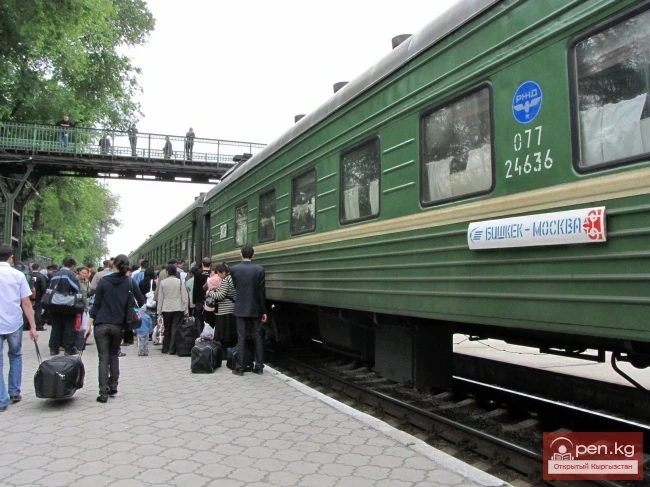Migration Situation in the Kyrgyz Republic from 1991 to 2005
According to various estimates, between 500,000 and 800,000 people have left Kyrgyzstan since gaining independence. As a result of this mass migration outflow, the economy of the country has suffered irreparable damage. The Republic has lost tens of thousands of qualified specialists, primarily engineers, educators, medical professionals, builders, and figures from science and culture.
Migration occurred in two stages. In the first wave, qualified specialists, engineers, doctors, and teachers—the foundation upon which Kyrgyzstan was formed as a state—left the country. In the second stage, in recent years, the most active citizens—the working-age population—have been leaving the country. According to experts, more than half of the entire working-age population has gone abroad for work. Many experts believe that these are natural processes that pose no danger. According to estimates by the International Monetary Fund, the annual remittances to Kyrgyzstan from labor migrants from Russia alone amount to $125 million. Other estimates suggest that the monthly total income of labor migrants from the republic is $100 million. However, the country cannot depend on remittances from labor migrants; such a situation cannot exist indefinitely. Currently, the migration processes occurring in the republic pose the greatest threat to the stable and conflict-free development of society in Kyrgyzstan.
The first migration boom, triggered by the collapse of the Soviet Union, the ill-considered language policy of the state (the Law "On the State Language of the Kyrgyz SSR" was adopted on September 23, 1989), interethnic conflicts (the Osh events of 1990), and a difficult economic situation, occurred at the end of the 1980s and the beginning of the 1990s. By the time of the 1989 census, the share of Russians in the total population of Kyrgyzstan had decreased to 21.5%. According to this census, there were 916,560 Russians, 108,000 Ukrainians, 101,300 Germans, and 70,100 Tatars living in the republic.
The outflow of Russians and Russian-speaking populations from 1989 to 1991 amounted to 214,900 people. The peak of migration occurred in 1992-1993. In 1992, 103,700 people left the republic, and in 1993, 143,600 people (see Fig. 2.14). By national composition, the largest number of emigrants were Russian-speaking: from 1991 to 1993, 122,016 Russians, 25,426 Germans, and 15,918 Ukrainians left the republic.
Starting from 1994, external migration from the republic gradually decreased, reaching 17,800 people in 1997. This was primarily due to the relative macroeconomic stability observed in the republic during this period.
A special situation arose in 1999. The negative impact on the migration process was caused by the Batken events—the flow of forced migration increased by 13% compared to 1998, with a total of 17,800 people emigrating (15,700 in 1998). Uncertainty about the future and concern for their children's future led to an increase in migration outflow, mainly to Russia—10,100 people (to the CIS countries—14,500, to far abroad—3,300). A positive migration balance was maintained only with Tajikistan, from where refugees arrived. By ethnic composition, the distribution of emigrants was as follows: 52% were Russian-speaking, 9-10% were Uzbeks and Germans, 7% were Kyrgyz, and 5-6% were Tatars and Ukrainians.
According to sociological research, migration today has significantly become younger. While in the first half of the 1990s, older generations were leaving for Russia, currently, the main age of those leaving is 30-35 years. Children and adolescents make up 18%, older individuals account for 15%, and the working-age population constitutes 64% of the total number of emigrants.
Among the emigrants of working age, the number of individuals with a relatively high level of education has significantly increased—15%. Those with secondary vocational and general education accounted for 68%.
It is also important to emphasize that the emigration of the indigenous population of the republic is gradually increasing. Due to economic difficulties in Kyrgyzstan, there is a natural process of increasing labor export. In search of work, about 200,000 Kyrgyz emigrated between 1994 and 1997. From 2000 to 2004, the share of Kyrgyz who left the country was 7.2% of the total number of emigrants. According to some data, between 500,000 and 700,000 indigenous people of Kyrgyzstan are currently working in Russia.
In total, during the years of independence (1990-2005), the migration outflow from the republic amounted to 490,600 people, of which the Russian population accounted for 293,300 people, or 59.8% of the total. The largest outflow was to the CIS countries—308,500 people, of which 273,000 people left for Russia (88.5% of the total from the CIS countries, or 55.6% of the total outflow).
To halt the migration flow, the government of the republic has taken a number of radical measures. In June 1994, the President of the Kyrgyz Republic issued a decree "On Measures to Regulate Migration Processes in the Kyrgyz Republic," which granted official status to the Russian language. In 1999, by presidential decree, the State Agency for Migration and Demography was established under the Government of Kyrgyzstan. This structure is engaged in researching relevant processes in the state and preparing draft laws on this issue. As previously mentioned, in May 2000, the Law "On the Official Status of the Russian Language" was adopted. According to the presidential decree, a special interdepartmental commission was tasked with developing a state program of measures to regulate migration and create favorable conditions for the study and development of the Russian language in Kyrgyzstan.
Read also:
Kyrgyz Republic - This is Our Land
The Kyrgyz Republic is a country of Heavenly Mountains, stunning nature, and hospitable,...
The Beautiful Country Known as Kyrgyzstan
Kyrgyzstan is a small country bordering Uzbekistan, Kazakhstan, and Russia. The main attractions...
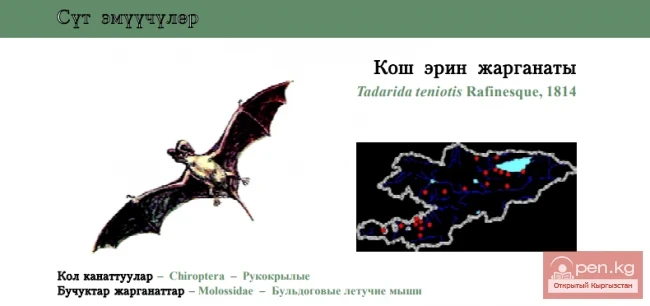
Broad-eared bat / Erin's bat / European Free-tailed bat
Broad-eared bat Status: Category VII, Lower Risk/least concerned, LR/lc....
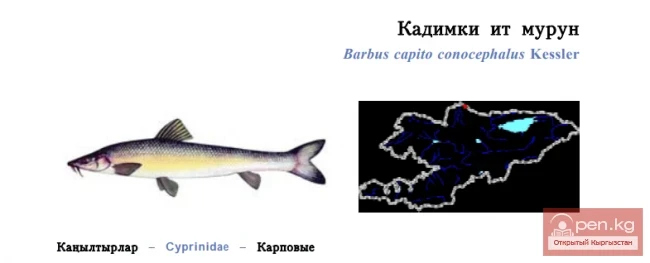
Turkestan Barbel / Kadimki It Murun / Turkestan Barbel
Turkestan Barbel Status: 2 [VU: D]. A subspecies that is endangered in Kyrgyzstan. One of...
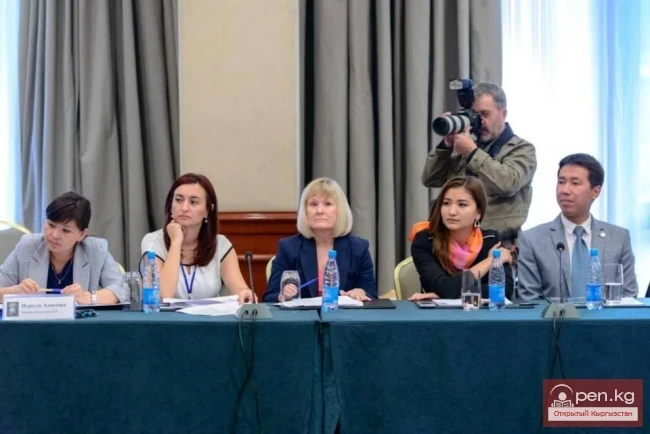
The International Business Council has developed a vision for the development of Kyrgyzstan's economy.
The International Business Council has developed a vision for the development of the Kyrgyz...

Vladimir Ivanovich Nifadyov
Nifadyov Vladimir Ivanovich (1947), Doctor of Technical Sciences (1993), Professor (1995),...
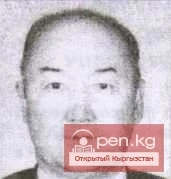
Erkin Kaparovich Boronbaev (1947)
Boronbaev Erkin Kaparovich (1947), Candidate of Technical Sciences (1979), Professor (1995)....
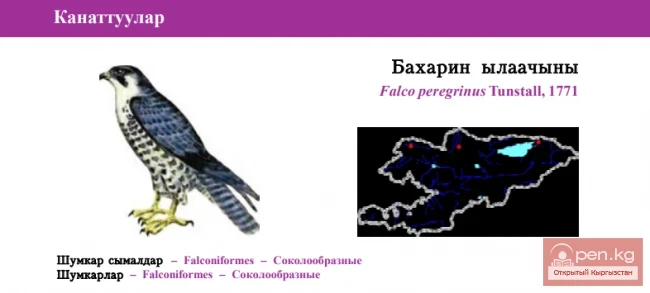
Saker \ Bakharyn ылaaчыны / Peregrine Falcon
Peregrine Falcon Status: Category VII, Least Concern, LC. One of 10 species of the genus in the...
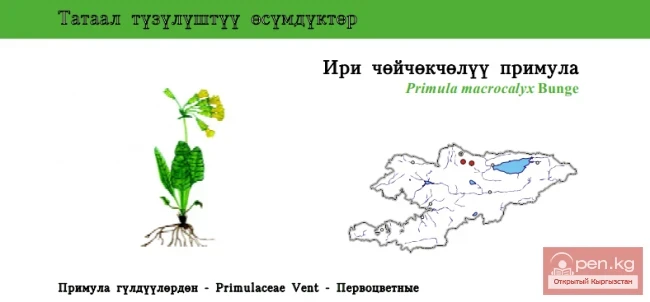
Large-calyxed Primrose
Large-calyxed Primrose Status: VU. In Kyrgyzstan, it is a very narrowly distributed, rare,...
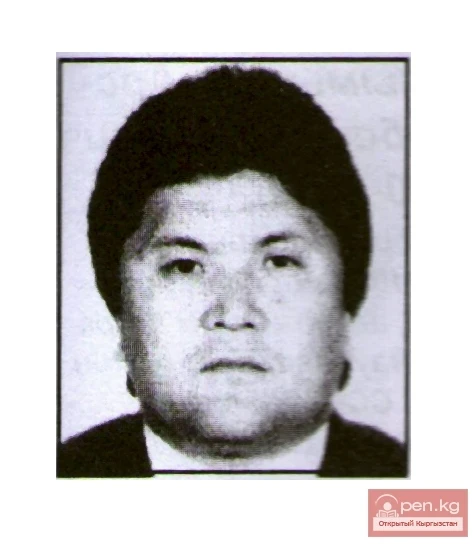
Alisherov Avtandil Shermatovich (1955)
Alisherov Avtandil Shermatovich (1955), Doctor of Medical Sciences (1996), Professor (2000)...
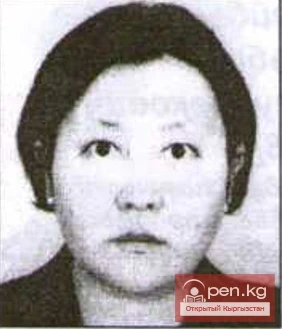
Kudayberdieva Gulmira Zulpuqarovna
Kudayberdieva Gulmira Zulpuqarovna (1962), Doctor of Medical Sciences (2001) Kyrgyzstan. Born in...
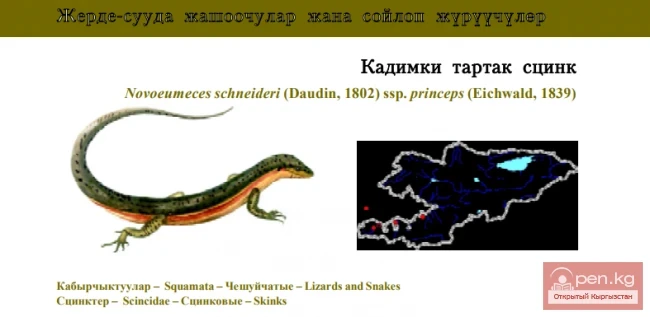
Schneider's Gold Skink / Kadimka Tartak Skink
Schneider’s Gold Skink Status: Category ENB1ab(iii). A sporadically distributed south-Turanian...

Types of Insects Listed in the 2004 IUCN RLTS Not Included in the Red Book of Kyrgyzstan
Insect species listed in the 2004 IUCN RLTS, not included in the Red Book of Kyrgyzstan 1....
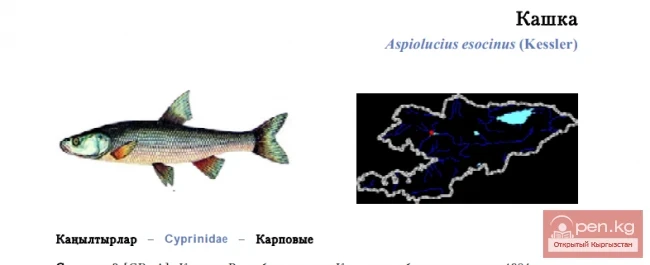
Pike Asp / Kashka / Pike Asp
Pike Asp Status: 2 [CR: A]. Listed in the Red Book of the Kyrgyz SSR in 1984. A rare...
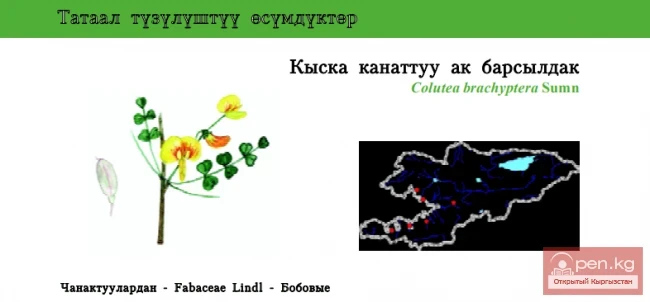
Short-winged Bladder-senna / Baibiche Chekey
Short-winged Bladder-senna Status: VU. One of three very rarely occurring species of this genus in...
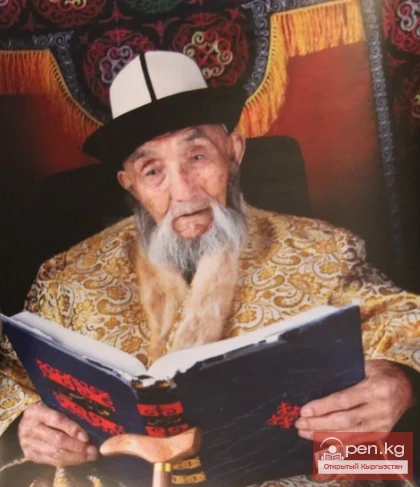
Hero of the Kyrgyz Republic Jusup Mamai
Jusup Mamai, the Great Narrator of the Epic "Manas" He was born on May 4, 1918, in the...
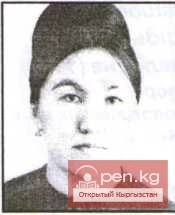
Bakassova Zaryl Bakasovna (1932)
Bakasova Zaryl Bakasovna (1932), Doctor of Chemical Sciences (1977), Professor (1992),...
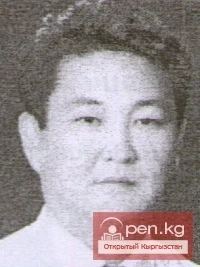
Batyraliev Talantbek Abdullayevich (1960)
Batyraliev Talantbek Abdullaevich (1960), Doctor of Medical Sciences (1999), Professor (2001)....
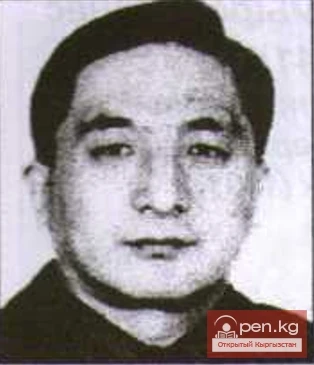
Mamitov Abakir
Mamyotov Abakir (1954), Doctor of Pedagogical Sciences (1999), Professor (1993) Kyrgyz. Born in...
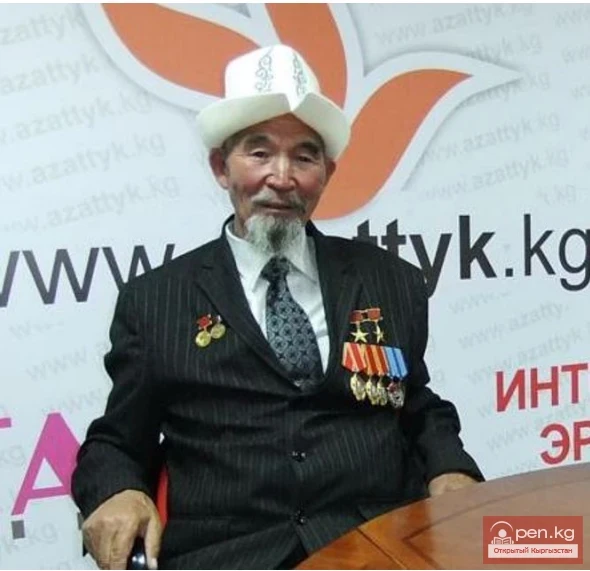
Hero of the Kyrgyz Republic Akmatov Tashtanbek Akmatovich
Tashtanbek Akmatovich Akmatov — Kyrgyz state and political figure. He was born in September 1938...
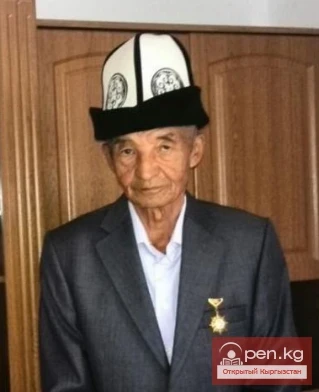
Hero of the Kyrgyz Republic Arikov Kurmanbek
Kurmanbek Arykov, installer of steel and reinforced concrete structures at JSC...
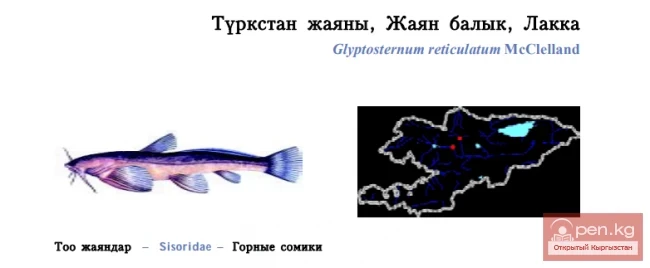
Turkestan Catfish / Turkestan Zhayany, Zhayany Fish, Lakka
Turkestan Catfish Status: 2 [VU: E]. The only representative of the genus in Kyrgyzstan....
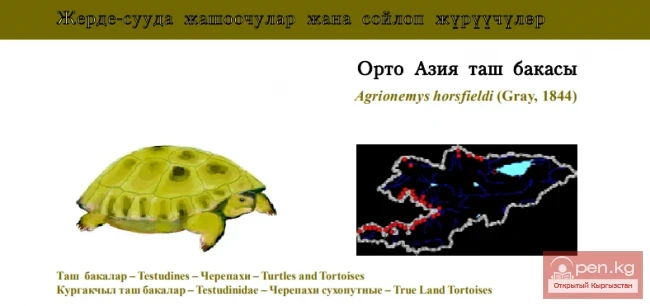
Central Asian Tortoise \ Orto Asia Tortoise / Steppe, or Afghan, Tortoise
Central Asian Tortoise Status: VU Blab (ii, iii, v); Cl. A representative of a monotypic genus,...
Ordo Sakhna Music from Kyrgyzstan of the Folk Ethnographic Theater
Ordo Sakhna – The Folk Ethnographic Theater. Biography. The folk ethnographic theater Ordo Sakhna...
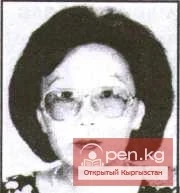
Ainagul Dzhumagulova Seksenalievna (1954)
Dzhumagulova Ainagul Seksenalievna (1954), Doctor of Medical Sciences (1997), Professor (2001),...
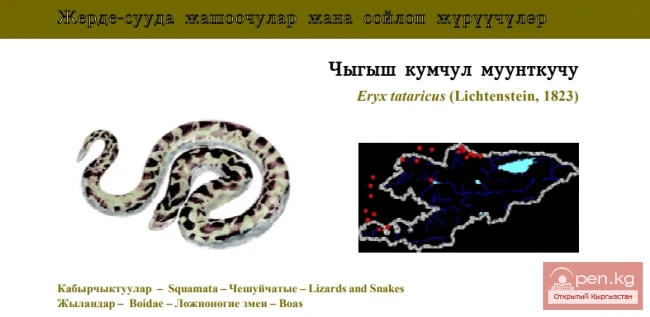
Eastern Sand Boa / Chygys Kumchul Muuntkuchu / Tatary Sand Boa
Eastern Sand Boa Status: Near Threatened (NT). One of 10 species of the genus, which includes...
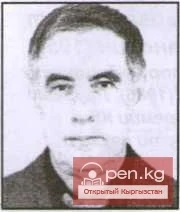
Gurovich Viktor Tsalevich (1937)
Gurovich Viktor Tsalevich (1937), Doctor of Physical and Mathematical Sciences (1983), Professor...
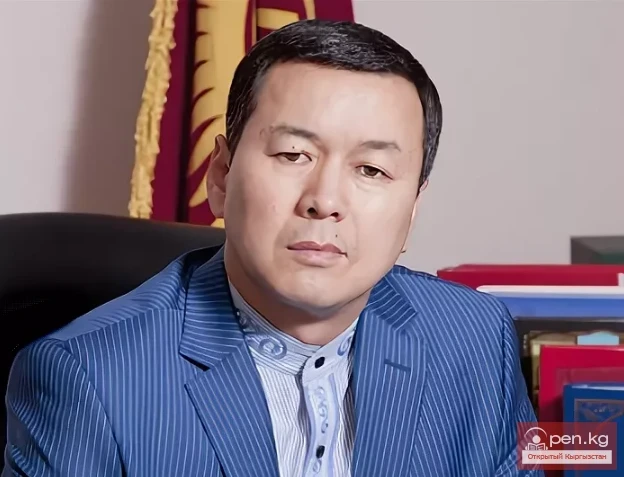
Hero of the Kyrgyz Republic Aliaskulov Aliyasbek Tolbashievich
Aliaskulov Aliyasbek Tolbashievich Born on May 5, 1971, in the village of Ken-Aral, Talas region....
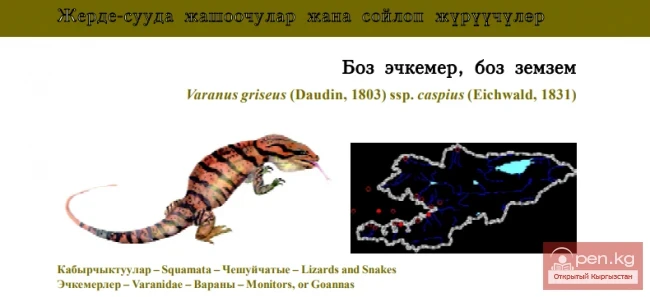
Gray Monitor / Boz Echkemer, Boz Zemzem / Transcaspian Desert Monitor
Gray Monitor Status: Category CR A4bc; E. In Kyrgyzstan - fragmented populations of the declining...
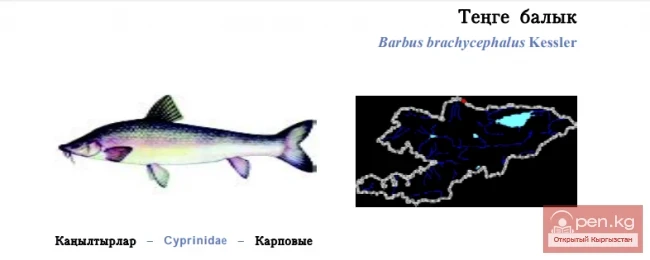
Aral Catfish / Tenge Fish / Aral Barbel
Aral Barbel Status: 2 [CR: C]. Species extinct in Kyrgyzstan....

Crane Beauty / Karkyra / Demoiselle - Crane
Demoiselle Crane Status: Category VI, Near Threatened, NT: R. One of two species of the genus in...
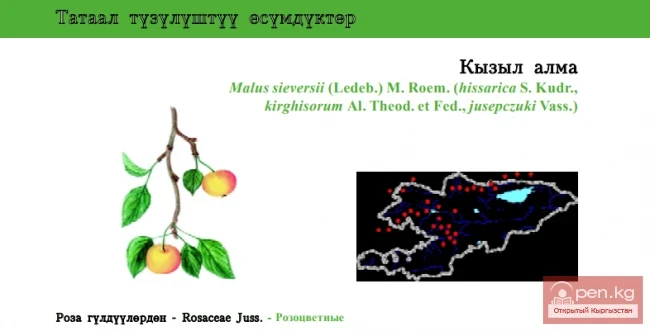
Sievers’s Apple-tree \ Kyzyl Alma \ Sievers’s Apple-tree
Sievers’s Apple-tree Status: LC category. A polymorphic species of the mountain-central Asian...

A Bishkek Resident Will Appear on the Cover of the Russian Glossy Magazine "Top Asian People"
Bishkek resident Nursultan Alibekov won the online voting of the "Guy of the Month"...
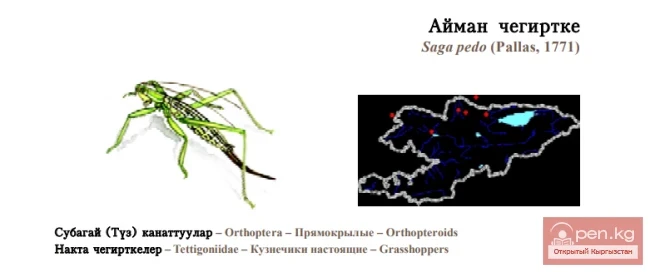
Steppe Dybka / Ayman Katydid / Matriarchal Katydid, Predatory Bush Cricket
Steppe Katydid Status: Category II (VU Alc; B2ab(iii,iv); D1+2). A relic steppe species with...
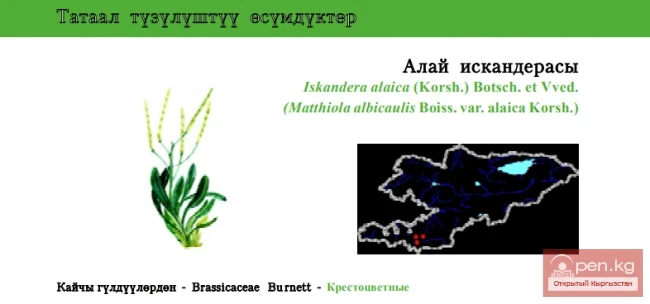
Iskander of Alai / Alai Iskander / Alai Iskander
Iskandera Alai Status: VU. A very rare narrow endemic species. There is only one species of this...
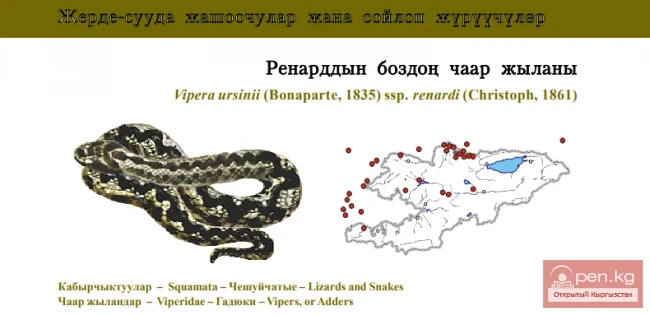
Renard's Meadow Viper
Renard’s Meadow Viper Status: Category VUA4bc. A subspecies of the south-west Palaearctic species,...

Technology Festival Tech and Science Fest
For the first time, Kyrgyzstan will host the Tech and Science Fest, a significant event in the...
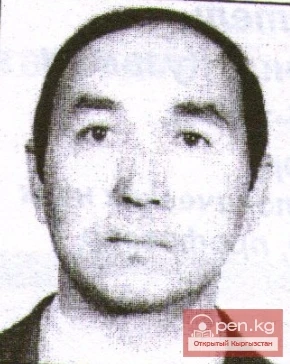
Omorov Turatbek Tursunbekovich
Omorov Turatbek Tursunbekovich (1951), Doctor of Technical Sciences (1997), Laureate of the State...
How the Image of the Kyrgyz Man Has Changed
100 years/ Style/ Kyrgyzstan. Limon.KG: How the image of the Kyrgyz man has changed...
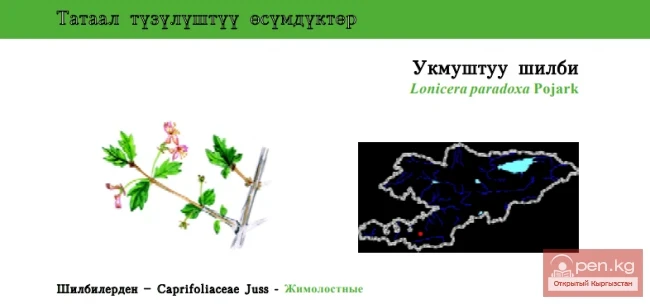
Strange (Paradoxical) Honeysuckle / Укмуштуу шилби / Paradoxical Honeysuckle
Paradoxical Honeysuckle Status: Category CR B2ab(iii). A relict endemic species with a disjunctive...
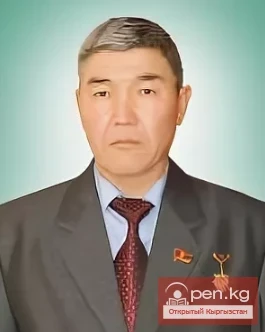
Hero of the Kyrgyz Republic Akbaraly Kabaev
Akbaraly Kabaev, foreman of builders at JSC "Narynhydroenergoстрой" Born in Jalal-Abad...

Pink Tulip / Little Red Mandala / Pink Tulip
Pink Tulip Status: EN. A narrowly endemic species of the foothills of the Turkestan Range, sharply...

Hero of the Kyrgyz Republic Kumushalieva Sabira
People's Artist of the Kyrgyz Republic Sabira Kumushalieva Born in 1917 in the village of...
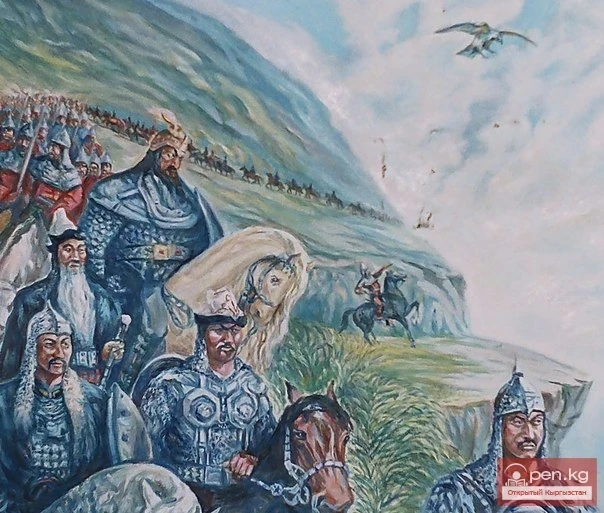
The State of the Yenisei Kyrgyz
Resettlement of the Kyrgyz to the Yenisei. The early medieval population of the Yenisei was...
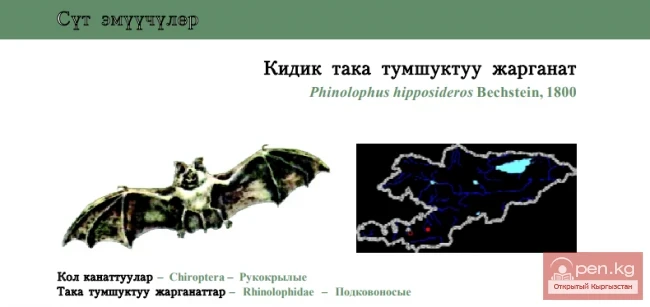
Lesser Horseshoe Bat / Kidik Taka Tumshuktyu Jarganat / Малый подковонос
Lesser Horseshoe Bat Status: Category VI, Near Threatened, NT: R. A species with a declining...
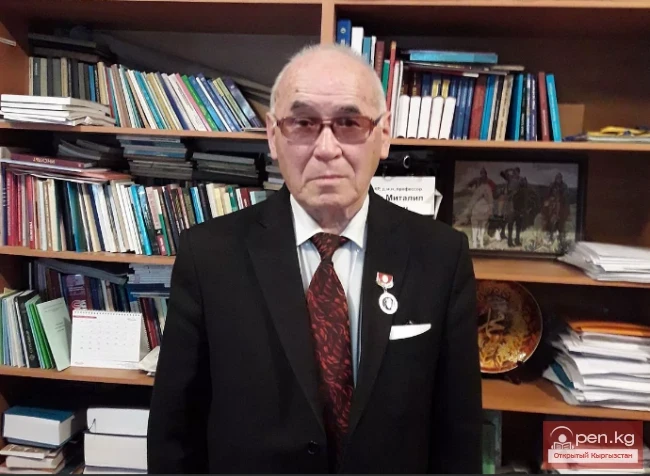
Hero of the Kyrgyz Republic Mamitov Mitalip Mamitovich
Mitalip Mamitovich Mamitov — Soviet and Kyrgyz neurosurgeon Born on December 16, 1939, in the...
